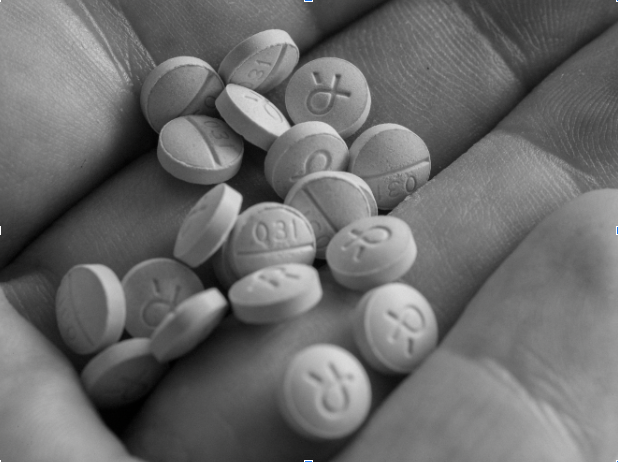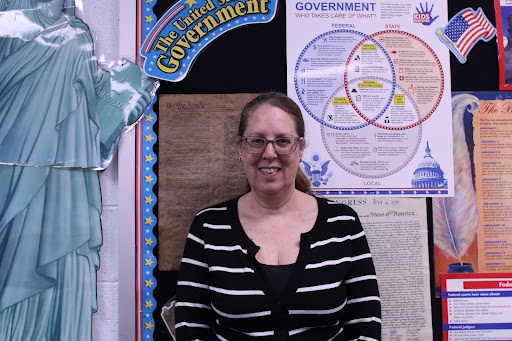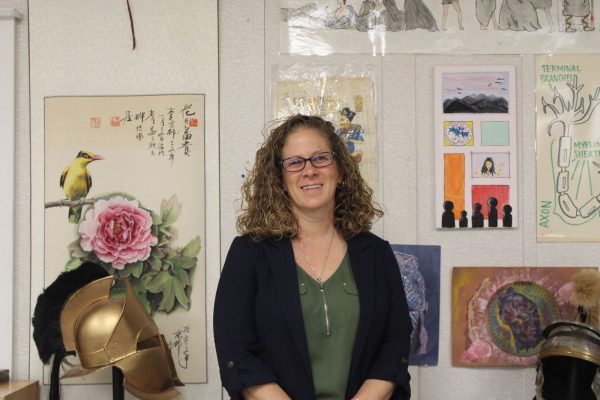‘It’s Just Not Worth it:’ Substance Abuse Poses Threats to Teens
Throughout the United States, many students do not realize the detrimental effects to the mind, body and spirit, that come with drug abuse. According to the National Center for Drug Abuse Statistics, over 50% of teenagers have misused a drug at least once and at least one in eight teenagers have been abusing a substance since 2021.
This issue is prevalent throughout the country, but how common is it at Centennial High School, and what are the consequences?
Centennial counselor JaeHi Hebler said that there are obvious effects of misusing a substance, including damage to brain cells. Because adolescent brains are not fully developed until the age of 25, substance abuse can really be damaging.
“The more you use the more you abuse,” stated Hebler.
Long term use of substances can take a toll on teenagers’ mental health and cause prolonged and even more severe psychological disorders, Hebler said. She also believes that it could be damaging to social interaction.
Centennial counselor Irene Khaksari shares similar views to Hebler. She believes that substance abuse is “incredibly harmful on teenagers since these are still developmental years.”
She also believes that substance abuse negativity affects adolescents’ mental health because they will make poor decisions while under the influence. Teenagers who engage in substance abuse often are experiencing an underlying psychological disorder and by abusing substances, they will only make the condition worse.
Because everyone’s body is different, it is hard to give a definitive answer on which long term psychological effects are caused. Despite this, Khaksari did mention several of the long term effects that are common when using a substance, which include addiction, dependency, dynamics in relationships, weight loss, and sleep apnea.
“Some students use marijuana recreationally and are still able to meet their goals, some students start drinking early and never stop. It’s hard to [say] who will fall into what category… The risks are too high, and it’s just not worth it honestly,” Khaksari said.
Regarding the prevalence of substance abuse at CHS, Hebler notes that it’s difficult to know because many students hide it, and it’s obvious that teenagers would not want teachers or administrators to discover this activity.
“We do have some [substance abusers] , not a lot,” estimated Hebler.
Khaksari believes that drugs and alcohol are prevalent at Centennial because she said these substances are often accessible, and many students have the “means to get it.”
Hebler believes that peer pressure plays a major role in the use and spread of substance. For example, “people who can afford it will give it to people who can’t afford it, people who can get it can give it to people who can’t get it, etc,” she explained.
There are also numerous reasons why teenagers partake in the abuse of substances. These reasons include experimental reasons, underlying psychological disorders and suicidal ideations.
“Sometimes students will use substances as a secondary mental illness due to maybe depression or anxiety, and they think that prolonging those disabilities by using drugs may relieve them,” Hebler shared.
Khaksari shares similar views as Heblers as to why teenagers parktake in substance abuse. She believes that students view it as a means for fun, peer pressure, coping from stress, impulsiveness, and exploration.
“The sense of immortality and nothing can hurt or harm us… I think there are many reasons anyone consumes drugs and alcohol,” Khaksari said.
In terms of consequence, she mentioned that administrators usually handle these issues and brought up the point that there are levels of consequence depending on the situation.
From Khaksari’s experience, if an issue pertaining to substance abuse arises on school property, she would reach out to students and families and use the Student Assistance Program (SAP) as well as outside treatment including, but not limited, to therapy and other forms of psychiatric treatments.
When students are struggling with these issues and come to a counselor or teacher, she said that they try to educate the students on the danger. If the situation is severe, they must report it to the student’s parents.
Both Hebler and Khaksari believe that students who are struggling with substance abuse should seek help from their counselors, and there are a plethora of other resources available as well. These resources include the HC DrugFree program and SAMHSA.org.
js
For more breaking news and photos, follow The Wingspan on Instagram and Twitter @CHSWingspan.






